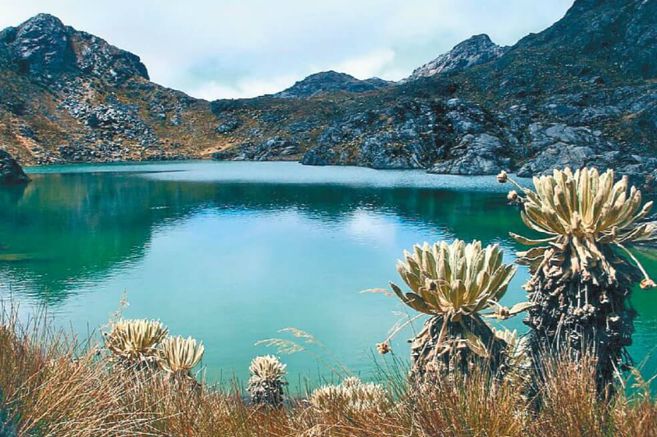Water, a fundamental human right!
"On 28 July 2010, through Resolution 64/292, the United Nations General Assembly explicitly recognized the human right to water and sanitation and acknowledged that clean drinking water and sanitation are essential to the realisation of all human rights" (United Nations, 2010).
Therefore, in today's post, access to " clean water and sanitation" are going to be the main topics.
The Life Water Organization (2021) exposes that approximately, 1 in 10 people worldwide don't have access to clean water, which represents a number of 784 million people. So, the UN’s Sustainable Development Goal 6, seeks to “ensure availability and sustainable management of water and sanitation for all” by the year 2030, because there are some critical situations liked to this global affair, like for example:
- More people die from unsafe water than from all forms of violence, including war.
- Diarrheal diseases, caused primarily by unsafe water and poor sanitation, kill more children under 5 years old than malaria, AIDS, and measles combined.
- About a quarter (22%) of health facilities in Least Developed Countries have no safe water.
One of the continents that suffers the most at not having access to clean water and proper sanitation is Africa, where for instance, only 22% of Somalians have running drinking water. But, in South Asia, only 22% of Afghanis have clean drinking water - and only 30% of them have proper sanitation facilities, which catalogues them at the lowest rate worldwide. (The Guardian, n.d.).
Also, it's important to recognize that this situation occurs completely in our country, Colombia, since in the coastal areas, "La Guajira" and many other regions, almost from its foundations, there have been infrastructure problems regarding the sewage system of towns and cities, and also with the adequate access to drinking water, despite this being a country that has enough water sources, coming mainly of the big amount of paramos (that if aren't protected could also represents a huge problem on clean water management on the country).
This situation is very familiar to me, since I have family on the Atlantic coast of the country, and a few years ago I went to spend vacations with them. In the short time I stayed there, I couldn't drink water from the tap because they told me I could get sick. In the first instance, I was surprised that they had to buy water almost daily to drink, and that some houses even bought water to prepare some food, because they feared getting sick from drinking undrinkable water.
But also, I could see an even sadder reality, many of the neighborhoods of Cartagena and Santa Marta (that are the ones I went to) don't have an adequate sewage system, which exposes the inhabitants to serious diseases and negative impacts on their health and well-being in general.
Good news? Since this year, a government project has been launched that seeks to develop 185 infrastructure works for the provision of drinking water and basic sanitation, throughout the national territory (Becerra, 2021). A hope to finally face this situation, in the midst of the current pandemic!
I want to conclude by saying that searching data for this post really moves me because it is hard for me to face that there are millions of people who live without meeting the basic needs of survival, which are vital to enjoy a dignified life!
It makes me aware of the various opportunities and privileges that I currently have, logically from my own reality, and it makes me want to take actions to contribute with the resources I dispose at this moment to address this kind of issues, such the ones I already started implementing as mentioned in my previous posts.
References:
Becerra, L. (2021). En ejecución, 32 obras de agua y saneamiento. Retrieved from: https://www.portafolio.co/economia/infraestructura/en-ejecucion-32-obras-de-agua-y-saneamiento-548506
Life Water Organization. (2021). World Water Day 2021: 10 Facts About the Water Crisis. Retrieved from: https://lifewater.org/blog/world-water-day-2021/
The Guardian. (n.d). Access to clean water. Retrieved from: https://www.theguardian.com/news/datablog/2009/mar/03/access-water
United Nations. (2010). The human right to water and sanitation. Retrieved from: https://www.un.org/waterforlifedecade/human_right_to_water.shtml#:~:text=The%20human%20right%20to%20water%20and%20sanitation&text=On%2028%20July%202010%2C%20through,realisation%20of%20all%20human%20rights.
Thanks,
Sharon.



Hi Sharon! Thanks for sharing this important topic that is clean water, it´s very sad to read that many people in the world doesn´t have access to clean water, In my personal opinion I think that here in Colombia people thank a shower 2 or 3 times a day and w don´t think that a big portion of the population doesn´t havee the possibility to make that and is something that we have to change
ReplyDeleteHello :)
DeleteYes, I totally agree with you since this is a issue that many people take for granted since they have this basic need covered and cannot imagine how their lives would be without this resource. However, we must see the positive side in the midst of this reality, and for example now with that government budget destined to improve the infrastructure of the sewers in the country, there is some hope. Thanks for your comment!
Hello Sharon, the topic you chose for this post seems very interesting to me since it is certainly shocking to see how many parts of the world do not have access to one of the basic and fundamental factors for the survival of the human race. After reading your post I learned about the wide variety of negative effects that the consumption of dirty water has on humans and the true level of severity.
ReplyDeleteHi Mariana,
DeleteI am glad to know that the content of this post has been helpful to you and that through environmental awareness, we can seek solutions that really help combat this problem that still affects millions of people.
Thanks for your reply! :)